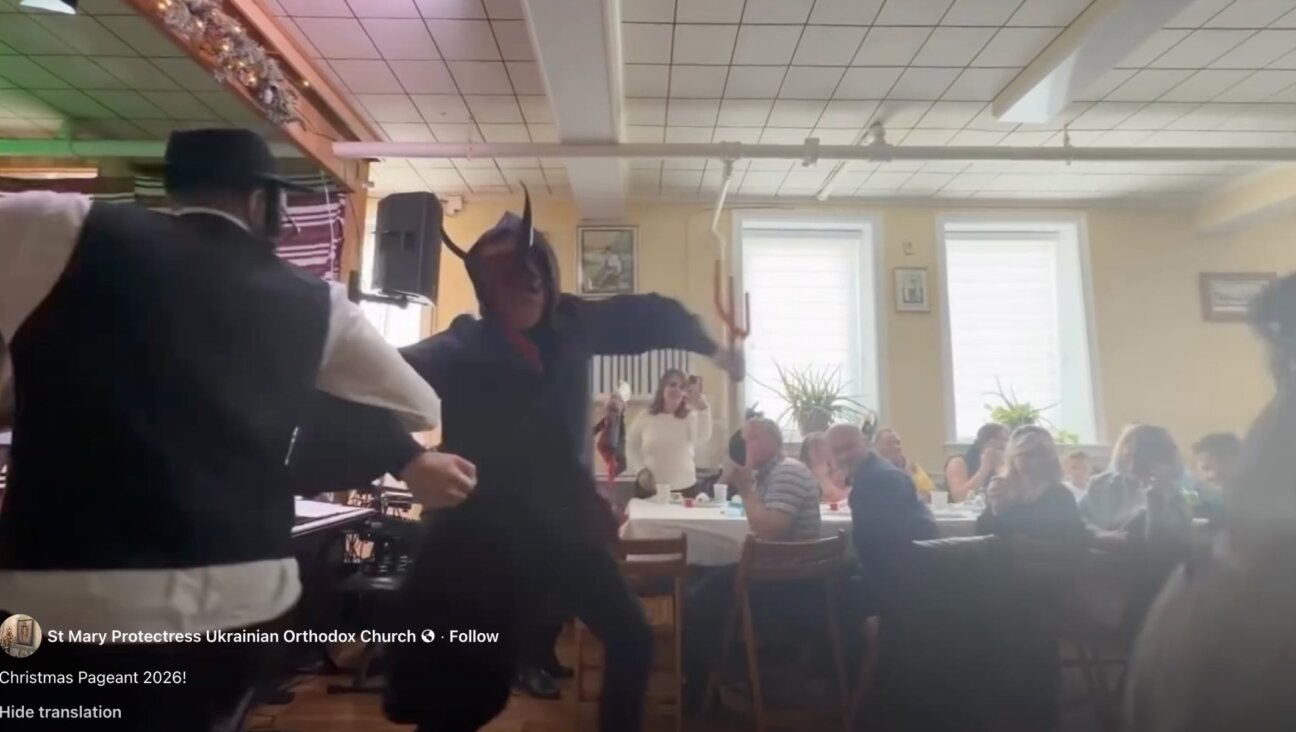GELT COMPLEX: Carter Snubbed, Bush Budget Blasted, Hillel Under Fire, The Orthodox Divide
Carter Snubbed
Two of America’s three living former presidents will co-chair a committee in charge of celebrating Israel’s 60th anniversary, but the third, Jimmy Carter, apparently was not invited to take part.
Carter did not get an invitation to be on the National Committee for Israel 60, according to a Jewish communal leader involved in the process of arranging the committee.
Carter has earned the ire of many in the organized Jewish community, thanks to his criticism of Israel — particularly in his book “Palestine: Peace Not Apartheid.” Jewish activists around the country are in the process of enlisting local elected officials to the National Committee for Israel 60, an ad hoc group supporting Israel’s anniversary celebrations in the United States.
The national committee, organized by the Conference of Presidents of Major American Jewish Organizations, will oversee events in the United States celebrating the 60th anniversary of Israel’s independence. So far, no details are available about the planned activities.
— Nathan Guttman
Bush Budget Blasted
Jewish groups blasted President Bush’s budget proposal for fiscal year 2009 because of the cuts it includes in social services. Next week, a letter signed by various organizations will be sent to all members of Congress, urging them to increase allocations aimed at providing help for the poor, for senior citizens and for children.
Lois Frank, chair of the Jewish Council for Public Affairs, issued a statement saying that while the JCPA “strongly agrees” with the need to cut the deficit, “we also believe it is essential that it be done in a fair and balanced manner.” The group said it was “disappointed” with the administration’s budget proposal.
In a letter now circulating among Jewish groups and soon to be sent to Congress, the organized Jewish community is stressing the need to re-fund several programs that did not receive adequate funding in the president’s proposal.
Among these programs is the Low Income Home Energy Assistance Program, which is designed to help needy families deal with rising heating costs. The funding level proposed by the administration is equal to that of 2001, though oil prices have surged more than 65% since then.
The letter also urges members of Congress to fund affordable housing and health care. “We need the helping hand and resources provided by our government,” the letter concludes.
Groups that already have signed on include United Jewish Communities, the Union for Reform Judaism and the Hebrew Immigrant Aid Society.
— Nathan Guttman
Hillel Under Fire
The Jewish campus organization Hillel rejected a call to disinvite two controversial speakers for its upcoming summit.
Hillel’s president, Wayne Firestone, defended the decision to invite University of Pennsylvania President Amy Gutmann and University of California, Irvine Chancellor Michael Drake to its Summit on the University and the Jewish Community, held March 24-26 in Washington.
Hillel had come under fire from the Zionist Organization of America. In a letter last week, the ZOA said that both Drake and Gutmann were inappropriate choices for speakers, since they have been “insensitive to the needs and concerns of Jewish students.”
Six of the nine pages of the ZOA letter were dedicated to detailing the “anti-Semitic speakers and programs” that are “routinely sponsored at UCI, causing Jewish students to feel threatened, harassed and intimidated.”
Gutmann was an inappropriate choice, the ZOA said, because she posed for a photo with a student who was dressed as a suicide bomber at a Halloween party at her home in 2006.
Firestone conceded that the photo was “in poor taste,” but he defended Gutmann’s “otherwise excellent record” of promoting Jewish life on campus. With respect to Drake, Firestone said he also was concerned with the situation at the UCI and had consulted with local Jewish leaders about the invitation.
“Like them, Hillel believes that a more constructive approach to Chancellor Drake is to engage him in conversation,” Firestone wrote to the ZOA. “The Summit will provide such an opportunity.”
— JTA
The Orthodox Divide
Troubled by a recent survey showing a pronounced political divide between Orthodox and non-Orthodox Jews, leaders from both sides met to talk things over.
The conclave between the Orthodox Union, the national body of Orthodox synagogues, and the American Jewish Committee, which focuses on national political and Jewish communal issues, was inspired by the results of the AJCommittee’s 2007 Survey of American Jewish Opinion. The survey found that Orthodox Jews diverged significantly from the rest of American Jews on a number of political issues.
While the Jewish community has historically had a solidly liberal and Democratic bent, the survey suggested that the Orthodox were twice as likely to be Republican. The speakers at the meeting strayed beyond politics to talk about denominational differences, education and how to lure unaffiliated Jews back into the fold. Several speakers suggested that the political differences stemmed not only from religious disparities but also from cultural differences: Orthodox Jews are generally immersed in a Jewish environment, which is rarely the case for non-Orthodox Jews.
“I’m surprised that some people are surprised about the results in the survey,” said Tzvi Hirsch Weinreb, executive vice president of the O.U. “Why should you be surprised? Orthodox Jews live totally different lifestyles, seven days a week.”
Steven Bayme, national director of contemporary Jewish life at the AJCommittee and one of the organizers of the gathering, said that political divides in the Jewish world weren’t necessarily a bad thing.
“Predictability is a sign of weakness, not of strength,” he said.
— Anthony Weiss
















